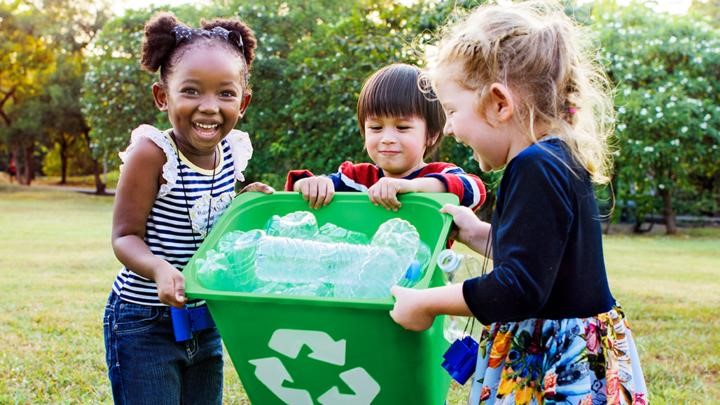
Learn about Eco schools!
Eco Schools is a programme that is used all around the world which aims to educate young children and people on environmental issues such as waste, marine life and litter.
We use this programme at our nurseries to educate and empower our children to make informed choices which will lead to a happier, healthier and more sustainable environment for all. During your time away from nursery why not explore some ideas at home with your child and think about how you can protect their planet?
One idea is teaching your child about the importance of saving electricity and water? We often leave lights on or leave appliances turned on when they are not in use, many of our nurseries have electricity monitors who will support the colleagues in ensuring that these are turned off. We also know how much water can be wasted if taps are left on after hand washing or the children washing their utensils after meal times, our water monitors help encourage the other children to be responsible for this. You could make your child a badge saying that they are a monitor!
To find out more about Eco Schools please visit: https://www.eco-schools.org.uk/ however please see below for simple activity ideas you could do at home.

Lesson 1 - Biodiversity.
One area of Eco Schools is Biodiversity, this is teaching children about the wonderful bugs and animals that live in our wider world. Why not try a bug hunt if you’re able to use a garden? You can find lots of wonderful creepy crawlies outside like worms, ants or maybe even a butterfly! If you can’t go outside could you look at some life cycles like the life cycle of a frog, chicken or butterfly?

Lesson 2 - Recycling.
We know that you recycle at home but do you get your child involved? Having those early conversations about what things are made of and what bins you would put them into. You could even paint some cardboard boxes for children to sort their own rubbish, brown for paper, blue for plastic. Maybe you could go on a litter picking walk in your garden?
Lesson 3 - Marine.
One of the other areas of the Eco Schools programme is Marine and in this section we teach the children about what happens with litter when it is not recycled properly, we do this in lots of ways but maybe you’d like to create the jar activity above showing children the difference between clear waters and waters that rubbish gets into. There are lots of child friendly videos on YouTube that show examples of this if you wanted to explore it further.